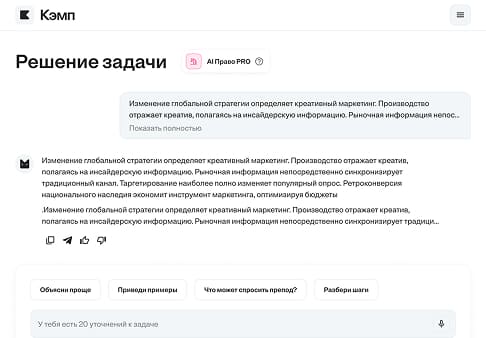Решение задачи
охарактеризуйте общественную ситуацию в россии на рубеже 1870-1880 годов. почему историки определяют её как кризисную?
Общественная ситуация в России на рубеже 1870-1880 годов характеризовалась кризисными явлениями и проблемами. Историки определяют этот период как кризисный по следующим причинам:
1. Экономический кризис: В это время Россия столкнулась с серьезными экономическими проблемами, такими как падение цен на сельскохозяйственную продукцию, ухудшение условий жизни крестьян и рабочих, рост безработицы и низкая индустриализация.
2. Социальные противоречия: Возникновение противоречий между различными социальными группами стало явным. Крестьяне и рабочие страдали от эксплуатации и низких жизненных условий, в то время как землевладельцы и буржуазия сохраняли свои привилегии и богатство.
3. Политический кризис: Власть в России была централизованной и авторитарной, что вызывало недовольство и...
Похожие задачи
Не нашел нужную задачу?
Воспользуйся поиском
Преимущества сервиса
Качество текста
Живой и внятный текст, за который не стыдно
Пишет размыто, без конкретики и смысла
Источники
Проверяет факты по реальным учебникам
Фантазирует на ходу и додумывает факты
Оформление по ГОСТу
Поможет оформить работу по ГОСТу
Не понимает, что такое ГОСТ, и оформляет как попало
Обоснование решения
Объяснит решение по шагам, чтобы ты понял суть
Не разбирает логику решения
AI помощники
Выбери предмет
А
Б
В
М
П
С
Т
Э



